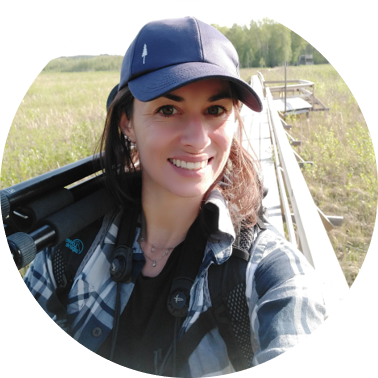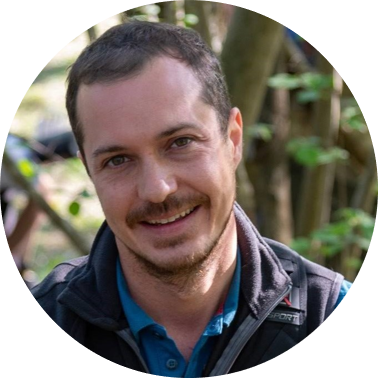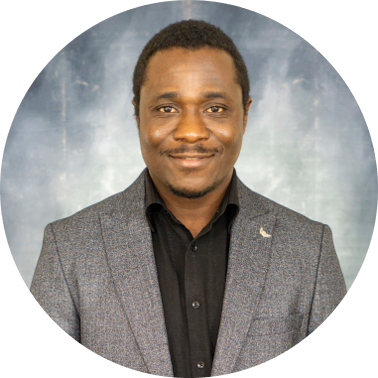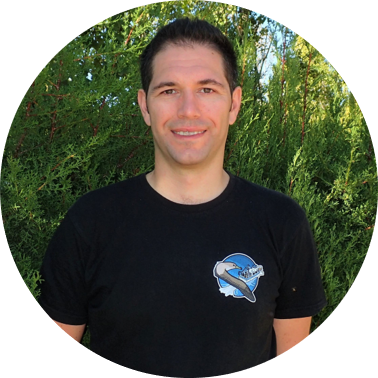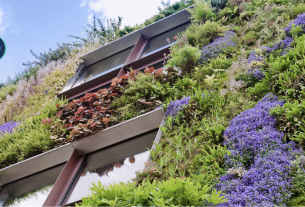Ecological Solutions and Evidence is delighted to announce 27 new Associate Editors who have joined the Editorial Board following our latest open call across all seven BES journals.
At the end of 2022, the British Ecological Society journals conducted an open recruitment process for Associate Editors across all seven BES journals.
This was the third time such a process has been conducted as we continue to seek ways of improving the diversity of our Editorial Boards. The process also provides an opportunity for ecologists from all over the world to become part of the decision-making process that ensures we publish robust, high quality science that advances ecological research and practice around the world.
Ecological Solutions and Evidence received 50 applications across 28 different countries from which we have appointed 27 new Associate Editors, spanning 21 countries and 6 continents!

You can find out more about each Editor below. Please join us in welcoming them to the journal!
Ceres Barros (she/her/hers)
University of British Columbia, Canada
Ceres is a Research Associate at the University of British Columbia who is passionate about ecosystem stability and resilience to various global change drivers. In her current research, she uses landscape simulation models to understand complex ecosystem dynamics at large spatial scales, across different types of ecosystems, and considering multiple drivers of change (e.g. climate, fire, land-use and permafrost thaw) and players (e.g., multiple species). She is particularly interested in developing continuously integrated, reusable and transparent modelling workflows that can be used by a wide range of ecologists and adapted to answer multiple questions related to ecosystem and species conservation and management.
Kira Borden (she/her/hers)
Trent University, Canada
Kira is an Assistant Professor in the School of the Environment at Trent University, Peterborough, Canada. Kira is an agroecologist with expertise in plant-soil interactions, plant functional ecology and biogeochemical cycling. Her solutions-oriented research addresses themes such as regenerative farming, climate change adaptation and mitigation, and biodiversity-ecosystem services linkages in agricultural landscapes. Kira works with scientists, practitioners, farmers and policy makers on interdisciplinary research projects; currently with a major focus on understanding the mechanistic connections between plant/crop function and farm to regional scale nutrient cycles, and the impact on meeting net zero greenhouse gas emissions targets.
Laura Bosco (she/her/hers)
Finnish Museum of Natural History, Finland
Laura Bosco is a conservation ecologist currently working as a postdoctoral researcher at the Finnish Museum of Natural History in the Helsinki Lab of Ornithology. Laura has a background in agroecology combined with landscape ecological approaches. More recently, she has been working with long-term and large-scale data aiming to answer questions on how species and communities respond to climate and land use change. She collaborates in other projects on e.g. virus spillover dynamics among wild bees and honeybees in relation to landscape fragmentation and habitat loss at local and landscape scales.
Caryne Braga (she/her/hers)
Universidade Estadual do Norte Fluminense Darcy Ribeiro, Brazil
Twitter | Website | ResearchGate
Caryne is a Professor and Researcher in conservation ecology at UENF. Her research focuses on the effects of deforestation and habitat fragmentation on vertebrate communities, particularly mammals. Her studies examine animal movement, community structure and natural history. Recently, through collaboration with other researchers, Caryne has also been investigating One Health aspects, analyzing the impact of land use changes on heavy metal accumulation in mammals and amphibians and the composition of small tetrapod’s microbiomes (including viruses, bacteria and helminths).
Elena Concepción (she/her/hers)
Museo Nacional de Ciencias Naturales, Consejo Superior de Investigaciones Científicas (MNCN-CSIC), Spain
Twitter | Website | ResearchGate
Elena is a landscape ecologist in the Biogeography and Global Change Department at the Spanish National Museum of Natural Sciences. She is mostly interested on the impacts of human-driven land use and cover changes (LUCC) on biodiversity and ecosystems at broad spatial scales. Her research focuses on the impacts of agricultural intensification and urban expansion on biodiversity and ecosystems, and how these major drivers of LUCC jointly affect biodiversity and ecosystem functioning. She is also committed to the assessment of policy and management tools for the effective protection of biodiversity and ecosystems in increasingly extending humanized landscapes.
Andrea Costa (he/him/his)
University of Geonoa, Italy
Andrea is a Research Fellow in the Department of Earth, Environmental and Life Sciences at the University of Genoa, Italy. His primary interest lies in biodiversity conservation with a particular focus on amphibians, reptiles and the impact of anthropogenic activities on biodiversity at a landscape scale, including agriculture, forestry, land use change and land abandonment. He is also interested in studying the impact of semi-natural environments on community composition and connectivity. Andrea’s research focuses on the development and application of cost-effective sampling methods for monitoring amphibian and reptile populations with an emphasis on hierarchical models. In addition, he investigates the trophic ecology of amphibians, including inter-individual variation in resource use, and its causes and consequences.
Nicolas Deere (he/him/his)
Durrell Institute of Conservation and Ecology (DICE), University of Kent, UK
Twitter | Website | ResearchGate
Nicolas is a conservation biologist specialising in the practical application of quantitative methods to inform evidence-based solutions for biodiversity management in human-modified tropical landscapes. He is currently a Postdoctoral Research Associate at the Durrell Institute of Conservation and Ecology (DICE), University of Kent, focussing on the impacts of socio-ecological change on medium-large mammals in Southeast Asia, with an emphasis on patterns and processes of defaunation.
Gideon Deme Gywa (he/him/his)
Case Western Reserve University, USA
Twitter | Google Scholar | ResearchGate
Gideon is a Postdoctoral Scholar in the Department of Biology at Case Western Reserve University, Cleveland, USA. Gideon’s research goal is to develop a unifying mechanistic framework to understand how environmental disturbances due to past and present anthropogenic pressures impact ectotherms’ adaptation through plasticity or evolution of novel traits, population persistence, and survival across different ecosystems. In addition to this, Gideon has a strong interest in research synthesis on how policies across African countries are helping to mitigate plastic pollution and public health burden. Gideon is originally from Nigeria and earned his PhD in Ecology in 2022 in a joint program with the Institute of Zoology, Chinese Academy of Science and the University of Chinese Academy of Science.
Lukas Egarter Vigl (he/him/his)
Eurac Research – Institute for Alpine Environment, Italy
Twitter | Website | ResearchGate
Lukas is a landscape ecologist aiming to explore why, where and how agroecosystems and landscapes change in response to changes in management and climate, and what this means for ecosystem health and human wellbeing. To answer these questions, he mainly uses tools and concepts from the fields of ecology, geography and agronomy, operating at multiple scales that range from the plot to the landscape level. Lukas is currently a Senior Scientist at the Institute for Alpine Environment of Eurac Research, Italy, and a Lecturer in Environmental Geomatics at the Department of Ecology of the University of Innsbruck, Austria.
Norris Erhabor (he/him/his)
University of Benin, Benin
Natalia Escobedo Kenefic (she/her/hers)
Universidad de San Carlos de Guatemala, Guatemala
Natalia is a Biologist based in San Carlos University, Guatemala. She has focused her research efforts on studing the ecological dynamics of insect pollinators in agricultural landscapes in the tropics. Natalia’s work has allowed her to develop skills for experimental design and planification in highly heterogeneous and difficult landscapes that also are heavily influenced by local and traditional practices. She aims to understand the importance of these factors in the maintenance of ecological dynamics in tropical agriculture and their relationship with the conservation of species, natural ecosystems and other environmental variables. Natalia is very interested in contributing to pollinator conservation through the generation of scientific evidence that could lead to more sustainable management of agroecosystems, especially in the tropics.
Insu Jo (he/him/his)
Manaaki Whenua – Landcare Research, New Zealand
Insu is a plant ecologist with a particular interest in plant functional strategies and its impacts on ecosystem processes in forest ecosystems. His research includes studying the effects of climate change and invasive species on community structure and ecosystem functioning. He explores the ecological mechanisms that drive community dynamics and its consequences, and aims to provide valuable insights that can inform conservation efforts. He is a researcher at Manaaki Whenua – Landcare Research, New Zealand.
Marcio Leite (he/him/his)
Netherlands Institute of Ecology, Netherlands
Twitter | Website | ResearchGate
Marcio is an Environmental Engineer with a PhD in Community Ecology and Biodiversity, specializing in microbial ecology and interested in aboveground-belowground interactions. Marcio’s research centers on how agricultural practices influence the co-dependence in the system of plant-soil-microbes, with a particular interest in tropical soils. He also studies how the diversity and species composition of secondary forests in the tropics is affected by land use history, soil propertie, and landscape composition. Marcio has expertise in joint species distribution model and data integration which, combined with his experience in ecoinformatics, allows him to analyze the complex interactions in the ecology of microbes.
Vinicius Londe (he/him/his)
University of Florida, USA
Jenny MacPherson (she/her/hers)
Vincent Wildlife Trust, UK
Jenny was based at Royal Holloway University of London for 10 years, carrying out research on the ecology and behaviour of a range of mammal species including pine marten, dormice, red squirrel, hedgehog, water vole and mink. Jenny has been involved with species reintroduction programmes in the UK and elsewhere since 1997. She joined the Vincent Wildlife Trust at the beginning of 2011 and is a guest lecturer at several universities including the Royal Veterinary College, London, Cardiff, Liverpool and Aberystwyth, and is currently co-supervising PhD projects at the Universities of Aberdeen and Exeter, where she is an Honorary Research Fellow.
Christos Mammides (he/him/his)
Frederick University, Cyprus
Twitter | LinkedIn | ResearchGate
Christos is a Conservation Ecologist with a keen interest in using spatial and statistical tools to quantify the impact of human activities on biodiversity, with a particular focus on bird communities. In addition, his most recent work focuses on understanding the factors influencing the effectiveness of protected areas and other area-based conservation measures in mitigating anthropogenic pressure on biodiversity. Christos also maintains an active research program in soundscape ecology, focusing on developing methods to analyze acoustic data effectively to monitor vocalizing animal communities in biodiverse regions. He is currently based at Frederick University, Cyprus, after seven years in China as an Associate Professor at Guangxi University and a Postdoctoral Fellow at Xishuangbanna Tropical Botanical Garden.
Cátia Matos (she/her/hers)
University of Hull, UK
Alejandra Morán-Ordóñez (she/her/hers)
Université de Lausanne /Universität Bern, Switzerland
Twitter | LinkedIn | Website | ResearchGate
Alejandra is a Landscape Ecologist and Ecological Modeler with more than 15 years of international experience in applied conservation science. She is interested in understanding how nature and society interact, and how both can be influenced by environmental policy and ecosystems management. In her research, she uses quantitative tools to understand ecological patterns and processes across multiple spatio-temporal scales, from waterholes to forest stands to whole continents. She is particularly interested in the use of scenarios to forecast the impacts of global change on species distributions and abundances, landscape configuration and ecological processes (e.g. connectivity) and ecosystem service provision. She frequently uses this ecological informtion to support informed decision-making (e.g. to assist real conservation planning problems). She is currently a Senior Research Fellow at the University of Lausanne, Switzerland, and Associate Researcher at the University of Bern, Switzerland.
Kilian Murphy (he/him/his)
Lab of Wildlife Ecology and Behaviour, University College Dublin, Ireland
Twitter | Google Scholar | ResearchGate
Kilian Murphy is a Research Scientist working in Dublin, Ireland. Kilian is currently a final year Ph.D. student at University College Dublin where his research focuses on informing wildlife conservation and management in data-sparse environments. This multidisciplinary workspace requires navigating complex stakeholder relationships, identifying and utilizing dark data, up-to-date knowledge of the latest statistical and computational methods to analyse such data, and finally, the ability to contextualize scientific research into applied policy and management scenarios. Concurrently, Kilian is also working within industry as a consultant spatial data scientist and ecologist to improve how companies collect monitoring data for and utilising deep-learning and statistical methodologies to analyse such data to optimise how we protect wildlife and their habitats from industrial development and ensure decision-making is driven by empirical research.
Florent Anguilles Dehogbe Noulekoun (he/him/his)
Korea University, South Korea
Florent is a Research Professor at the College of Life Science and Biotechnology, Korea University, Korea. He is an ecologist with expertise in plant and community ecology, plant-soil-atmosphere interactions, biogeochemical cycling and ecological modeling. Florent’s current research interests are centered around biodiversity and ecosystem functioning relationships in dryland tree-based ecosystems (i.e. forests, savannas and agroforests), with a particular emphasis on functional traits and their application in the management of these ecosystems to increase their resilience to vis-à-vis global environmental changes.
Jan Plue (he/him/his)
Swedish Biodiversity Centre, Swedish University of Agricultural Sciences, Sweden
Michael Roast (he/him/his)
University of Barcelona, Austria
Twitter | Website | ResearchGate
Michael is a Postdoctoral Ecologist, most recently at the University of Barcelona, studying the demographic impacts of industrial fisheries bycatch on seabird and sea turtle populations around West Africa. Michael gained his PhD from Monash University in the field of ecoimmunology and through collaborations, have also worked more broadly on ecophysiology, disease ecology and behavioural ecology projects. He originally studied degrees in Biological Sciences and Conservation and Biodiversity at the University of Exeter.
Kripal Singh (he/him/his)
Andong National University, South Korea
Twitter | Website | Google Scholar
Kripal Singh is a Research Professor in the Department of Biological Sciences at Andong National University. He is a plant and soil ecologist by training and his major research has been on understanding the impacts and effectiveness of different land use systems on soil health restoration and developing agrotechnologies that use degraded lands for bioenergy crops and perennial grass-based lignocellulosic biomass production. Currently, Kripal is involved in research to understand the priority effects of invasive and native plant species, plant community assembly and restoration of native plant communities after invasion control.
Krizler Tanalgo (he/him/his)
Eco/Con Lab, University of Southern Mindanao, Philippines
Krizler is an early career researcher with an interest in macroecology, conservation biology and biodiversity synthesis. His research primarily centres on understanding the patterns of extinction risk and pinpointing the most pressing conservation priorities for species and habitats based on their vulnerabilities. He aims to make conservation more accessible and streamlined for scientists and practitioners alike by developing simple tools, building open biodiversity databases, and fostering capacity-building. Presently, Krizler is leading a project with a broad objective of mapping the species, habitats, ecological interactions and threatening processes they face on various scales, while also considering the interplay between socioeconomic and ecological factors.
Péter Török (he/him/his)
University of Debrecen, Hungary
Péter is Professor of Plant Ecology at the University of Debrecen, Hungary. His research interest covers biodiversity dynamics and restoration of terrestrial plant comunnities with a strong focus on grasslands. Peter and his lab also works on research problems related to seed banks, plant dispersal and the effect of climate change on plant communities.
Yu Xu (he/him/his)
Guizhou Normal University, China
Yu is a Professor in the School of Life Sciences at Guizhou Normal University, China. His research interests revolve broadly around ecology and conservation biology, with particular emphasis on population dynamics, life history characteristics, habitat selection and conservation management of threatened or endangered birds and mammals in the mountains of southwest China. More recently, he has also been interested in the response of animal groups differing in dispersal ability to habitat fragmentation induced by urbanization.
Bingwei Zhang (he/him/his)
Beijing Normal University at Zhuhai, China
Find out more about the expertise behind Ecological Solutions and Evidence by visiting our full Editorial Board page.


